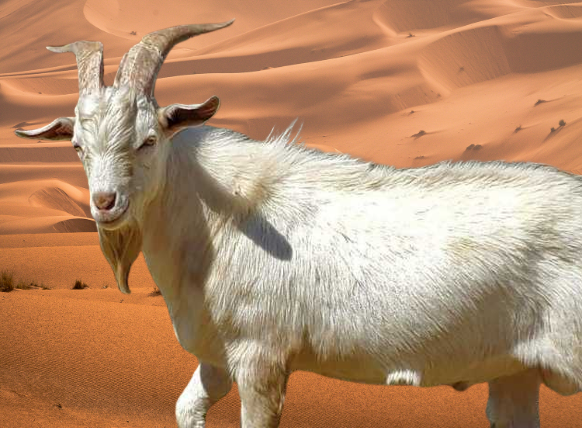The Kiko goat is an exquisite New Zealand goat breed. According to the Maori language, "Kiko" means "flesh" or "meat." Furthermore, Kiko goats are mostly raised for their meat.

The Kiko goat is distinguished primarily by its resilience and capacity to attain significant weight gains while grazing naturally without the need for additional nutrition. Furthermore, in less-than-ideal conditions, the female has the capacity of conceiving, carrying, giving birth, and rearing several offspring without assistance. The Kiko exhibits aggressive foraging behavior and can flourish in environments devoid of food.
Advantages
Simple and Easy to Maintain
Kiko goats are widely recognized for their low-maintenance requirements. They require little oversight and maintenance as they readily adapt to various climates and environments. For farmers searching for a hassle-free livestock solution, this makes them the perfect option.
Parasite Resistant
Kiko goats are distinguished by their inherent resistance to parasites. They possess a strong immune system, in contrast to numerous other varieties, which significantly diminishes the frequency of veterinary interventions. This resistance means that both the goats and the owners will have less stress and less money spent on medical care.
Hardy Nature
Kiko goats exhibit remarkable resilience. They are appropriate for many different climates because they can tolerate severe weather. Their capacity to thrive in harsh areas provides farmers with a more consistent source of income, regardless of the weather.
Good for Weed Management
Kiko goats are foragers by nature. Their preference for eating unwanted plants and weeds makes them a great asset for farmers who are having trouble controlling weeds on their lands. The land can be maintained more sustainably and efficiently by permitting Kiko goats to forage.
Friendly and Easy-going
Kiko goats are not only tough and durable, but they are also friendly. Their calm nature makes them easy to handle and control. Their placid attitude makes farming easier and keeps goats stress-free.
Disadvantages
Not a Good Milk Producer
Kiko goats do not produce a lot of milk, in contrast to several other breeds. Farmers looking for dual-purpose goats for both meat and milk may find that other breeds are more suited to their needs. This restriction could be a problem for farmers who want to sell a wide range of products.
Uneasy to Handle for Beginners
Kiko goats are amiable, but they can be difficult to handle, especially for beginners. Proper training and expertise are required to ensure the safety of both the animals and the farmers.
Occasionally Turn Aggressive
While normally docile, Kiko goats, like any other animal, can become aggressive under certain conditions. To deal with this uncertainty, farmers may need to be extra careful and know how their goats are acting all the time.










0 Comments